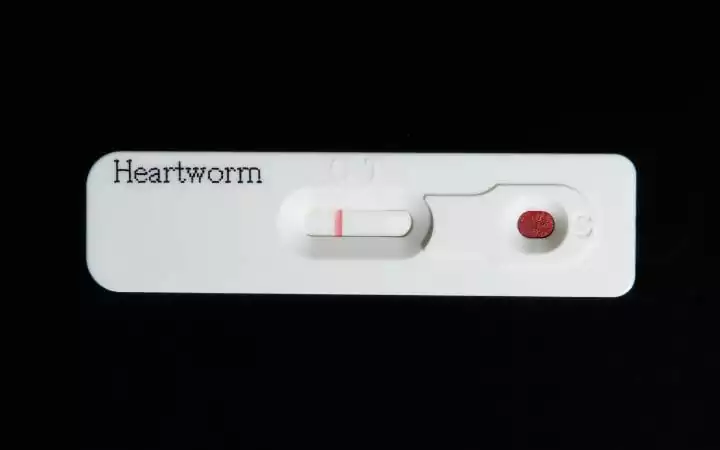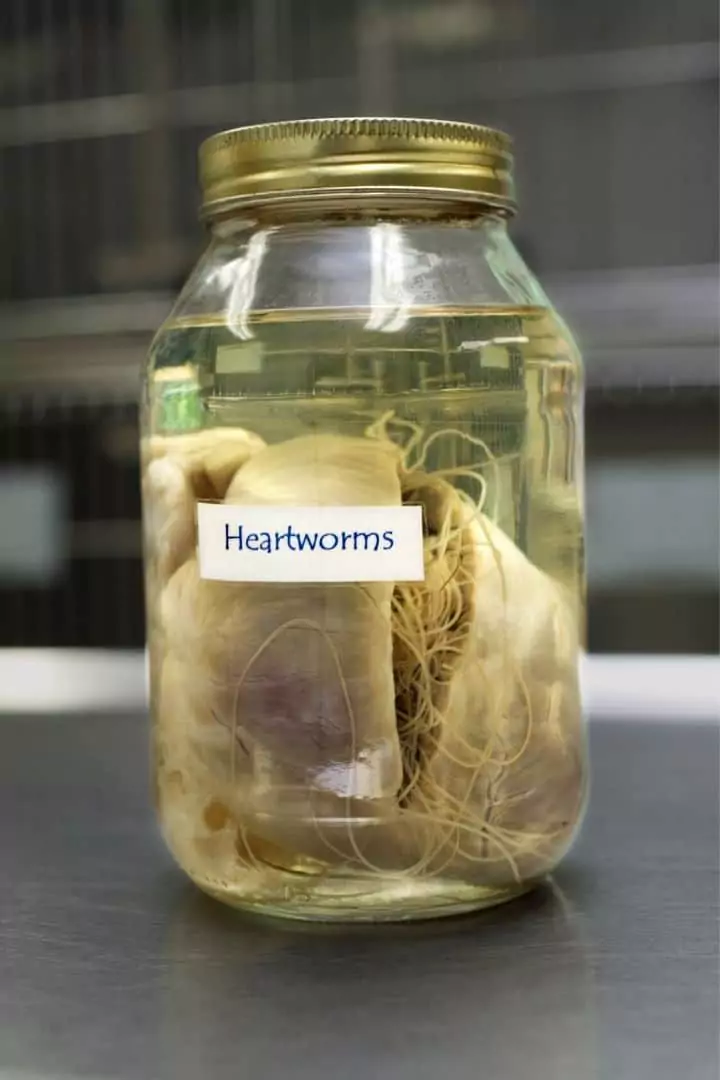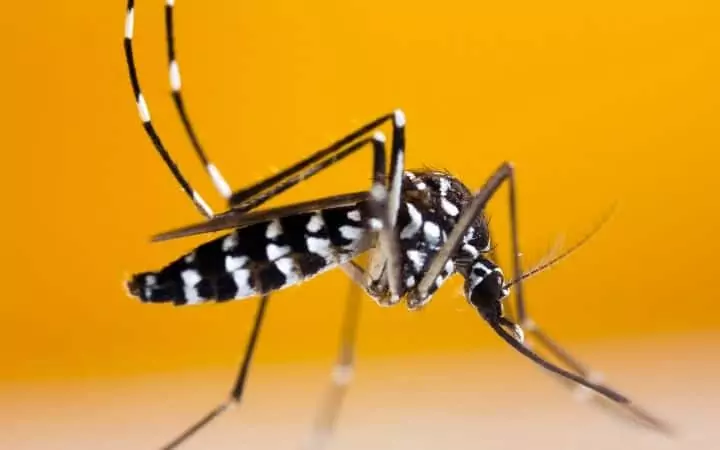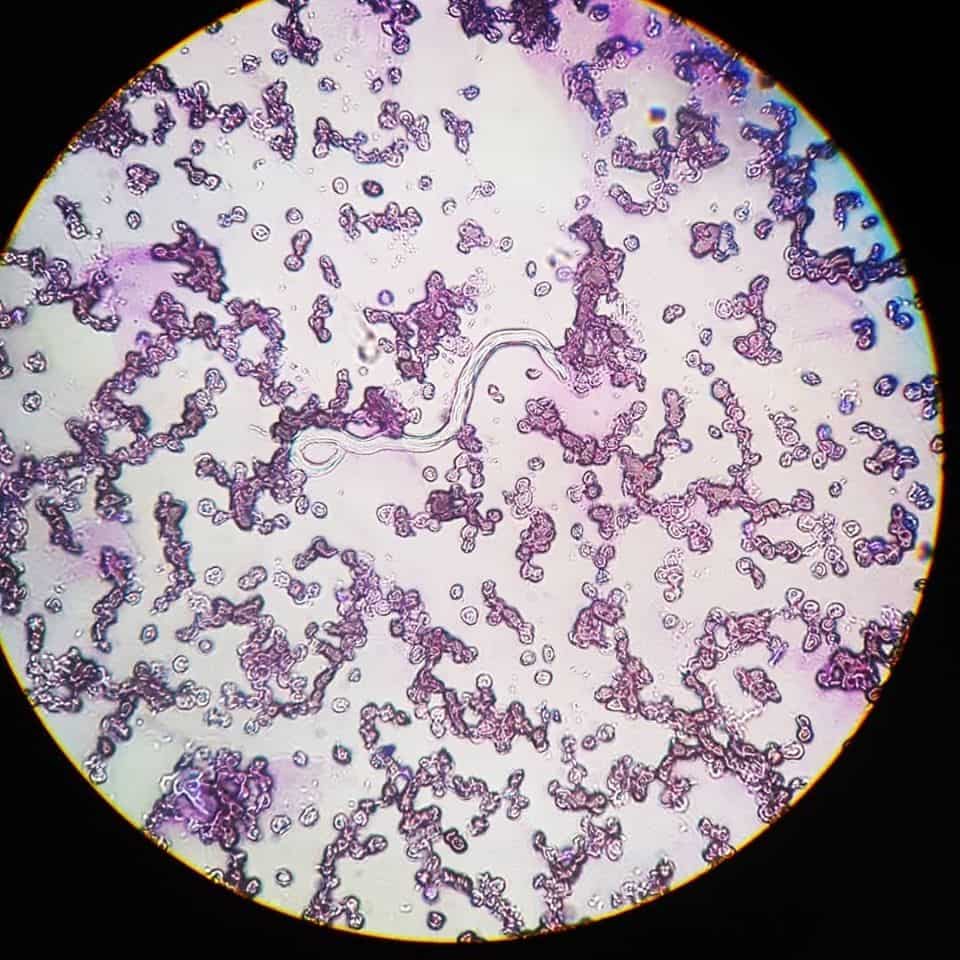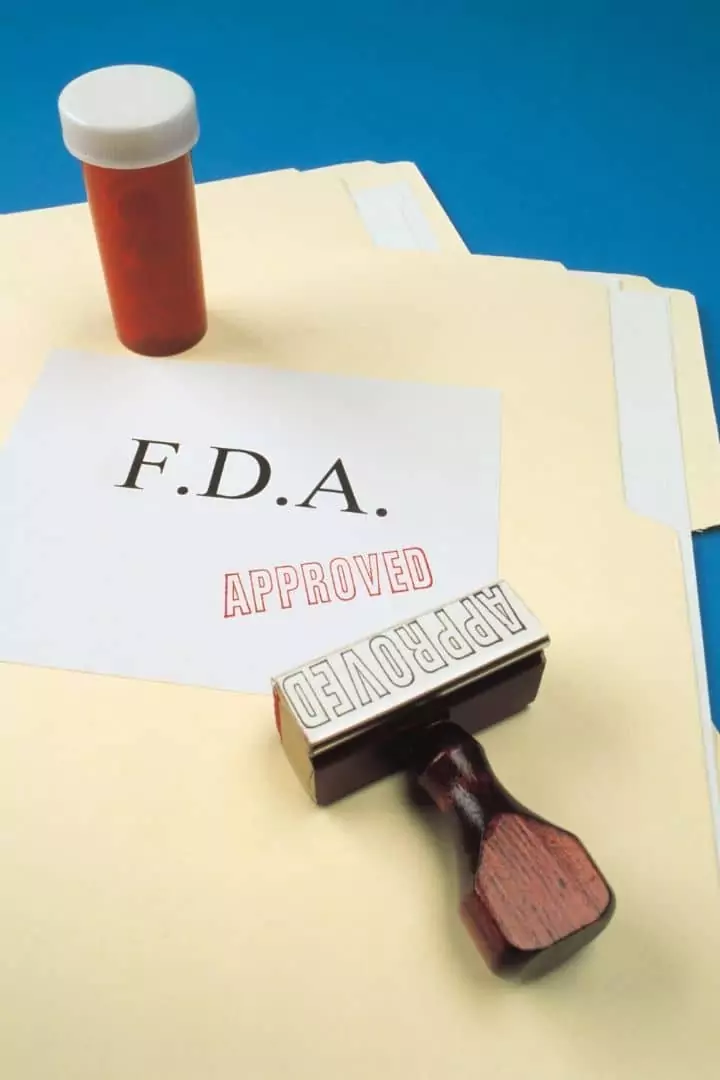For many people, the term “parasites” makes them wrinkle their nose and say aloud “Ewwww.” Parasites are one of the first things I learned when I started my career with animals, and even though I control my feelings of disgust towards them, I still get that feeling when I think about heartworms.
I believe it is crucial that pet owners understand how important it is to prevent them and are aware of how it is transmitted, the symptoms and stages. In this article, we will cover everything dog parents should know about heartworms.
What is heartworm in dogs?
Heartworm in dogs is a disease caused by a parasitic worm called Dirofilaria immitis that lives in the lungs, heart, and pulmonary arteries of the infected pet. Heartworm prevention is key for the wellbeing of your dog as this disease can be fatal and can cause heart failure, together with damage in other parts of the body.
Cases of heartworm in dogs have been reported in all fifty states of the U.S., and also in Central and South America, Japan, Australia, and some European countries, including Spain and Italy.
What is the life cycle of the heartworm?
As a pet owner, you might be thinking, “why do I need to know about the cycle of the heartworm? I don’t want to go back to biology class!” But let me tell you that it is crucial to know the lifecycle of the heartworm to understand how your pet can get heartworms and the stages of this disease.
First, we are defining three terms that will help explain the lifecycle of heartworms:
- Vector: is the carrier and transmitter of the disease. In this case, mosquitoes are the vectors.
- Intermediate host: gives shelter to the larvae stage. The mosquito is also the intermediate host where the offspring (microfilariae) of the adult heartworm becomes an infective larvae.
- Definitive host: the host in which the adult stage of the parasite lives or in which sexual reproduction takes place. The definitive host of heartworms is the dog.
With all this information, let’s have a look at the lifecycle of the heartworm:
- The female heartworm releases microfilariae (offsprings) into the dog’s bloodstream.
- A mosquito bites an infected dog to get its nutrients from the blood and becomes contaminated with microfilariae.
- The mosquito is now the intermediate host. In the following two weeks, the microfilariae will mature into infective larvae inside the mosquito.
- When the infected mosquito bites a dog, the infective larvae enter the dog (definitive host) through the skin. It will take six to seven months for the larvae to grow into adult heartworm. During the first three months, the larvae get their way through the veins and reach the heart to go through the pulmonary artery into the lungs. In the last three months, they continue to mature into adult heartworms.
- In the adult stage, they will start to reproduce. The cycle begins again when a mosquito bites the infected dog.
Heartworms can leave in the dog’s body up to seven years!
For those who love visuals, here is a useful graphic from the U.S. Food and Drug Administration (FDA).
How is heartworm disease transmitted from one pet to another?
The only way that your pooch can get heartworms is through the bite of an infected mosquito. Heartworm is not contagious and cannot be transmitted through direct contact with an infected pet.
What are the signs of heartworm disease in dogs?
If your dog becomes infected, you may not notice any signs of heartworm until six to seven months after infection (when the larvae arrive at the adult stage and begin to reproduce). There are four stages or classes of heartworm disease. The number of adult parasites, the location of the heartworms, prompt diagnosis and treatment, and how long the dog has been infected will influence these phases:
- Class 1: the dog may show no signs or mild symptoms such as moderate cough. In this stage, the heartworms are adults and are in the heart but have not started reproducing.
- Class 2: the dog’s body detects the presence of heartworms and starts to react by experiencing fatigue and a persistent cough.
- Class 3: in stage 3, the heartworms have been in the body for an evident amount of time and can be clearly seen in x-rays. The cough is more severe and may be accompanied by blood, tiredness also remains. The pooch may start presenting breathing difficulties, weight loss and abdominal inflammation due to fluid accumulation.
- Class 4: this is a life-threatening phase (caval syndrome) where blood cannot flow properly to the heart, lungs, and kidneys as a result of an excessive amount of worms, leading to heart failure, which may be followed by kidney and lung dysfunction. The dog may have symptoms such as vomiting, collapsing, weakness, difficult breathing, and poor overall condition. Your vet may need to perform urgent surgery called caval surgery, where heartworms are removed from the animal.
How significant is my pet’s risk for heartworm infection?
Even though you may have a pet that stays mostly indoors or you live in an area where heartworm is not a problem, there is still a possibility that your dog may get heartworm. Let’s check out some facts:
- It is true that outdoors dogs have greater exposure to getting infected in an area where heartworm is present, but mosquitoes (vectors) can enter into your house before you close the windows.
- Mosquitoes are more active in warm climates. However, unknown infected animals may be relocated to places where there is no prominence to mosquitoes or warm water and still spread the disease. Or a healthy animal can travel to a country where there are cases of heartworms and become infected.
- Wildlife, such as coyotes, wolves, and foxes can also be heartworm hosts and spread the parasites through mosquitoes.
How is heartworm disease diagnosed and treated?
As stated before, your dog may be symptom-free until the parasites are adults. The American Heartworn Society recommends that your pooch should be tested on a yearly basis even when they are taking preventive medication (don’t worry, we will get into prevention very soon!). This annual test can be done during routine visits and may help diagnose heartworm disease at an early stage and will increase the chances of recovery of your beloved friend.
On the other hand, in more advanced phases, your veterinarian may suspect heartworm from clinical history and will perform tests, including ultrasounds and X-rays, to check for any abnormalities in the heart and organs. Blood tests can confirm whether or not there is an infection by detecting proteins related to the parasitic worm (antigens). Another way of diagnosing heartworm is by taking a blood sample and look for microfilariae.
The treatment of heartworm can be a bit risky for your canine companion and may occasionally lead to drug toxicity. If your dog tests positive, your veterinarian will guide you with the best solution according to your pet’s situation.
Immiticide and Diroban (Melarsomine dihydrochloride) are FDA approved drugs for the treatment of heartworm given by injection. Melarsomine dihydrochloride kills adult heartworms. Exercise restriction is crucial during and after heartworm treatment as the worms are dying and decomposing in your dog’s body.

Advantage Multi for Dogs is another FDA approved topical solution, but this one kills microfilariae specifically.
When a dog is in phase 4 of heartworm disease, your veterinarian may recommend cava surgery.
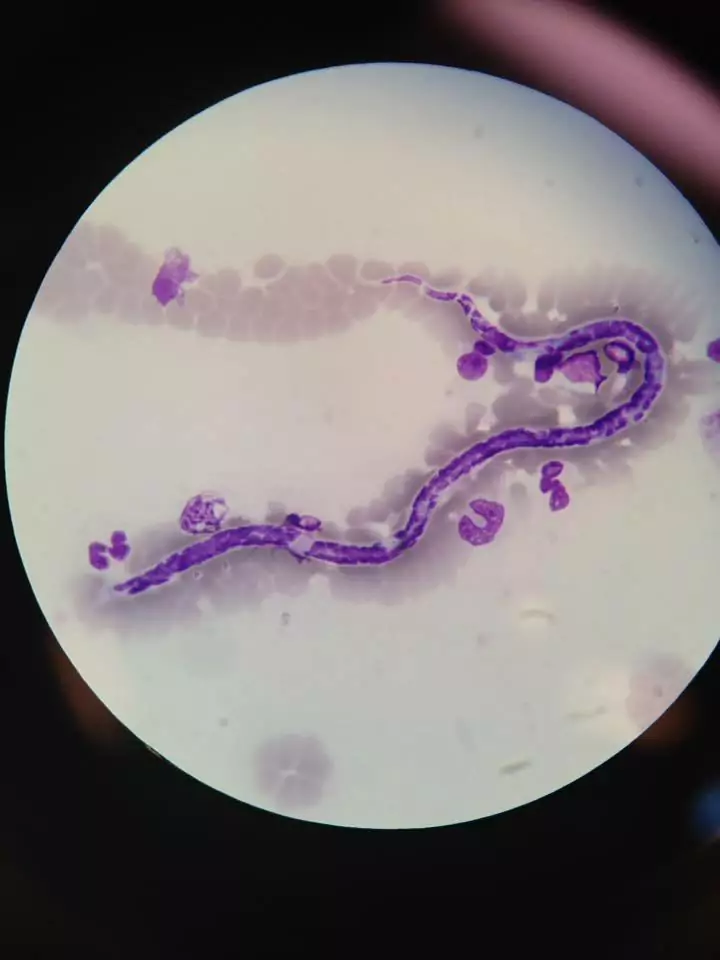
How can I prevent my dog from getting heartworms?
The good news is that heartworms are preventable! But as we mentioned earlier, it is essential that you ask your vet to continue testing your canine friend yearly.
Preventive medications are available under prescription, and they are cheaper than having to deal with treatment. Veterinarians may perform a heartworm test before starting a preventive drug to make sure your dog is heartworm-free. There are many FDA approved drugs that can be applied orally or topically, monthly, yearly or every six months. Consult with your veterinarian to find the best preventive medication for your pooch.

You can buy preventive drug like Heartgard after consultation with your vet.
Heartgard Plus for Dogs – Up to 25 lbs – 6 Doses
from: Vet Approved Rx
Heartgard Plus for Dogs – 26-50 lbs – 6 Doses
Heartgard Plus for Dogs – 50-100 lbs – 6 Doses
Consistency is key! Always follow your vet’s instructions for the health and benefit of your furry family member.
Can cats get heartworms?
Yes, cats can get heartworms, but it is a slightly different story than heartworm in dogs. Cats can also get infected by a mosquito (vector), but the infective larvae do not completely succeed in the feline’s body and result in only a few or none adult heartworms. Immature heartworms can still cause damage and lead to heartworm associated respiratory disease (HARD). Preventive drugs are also available for cats, discuss with your veterinarian the best option for your feline friend.
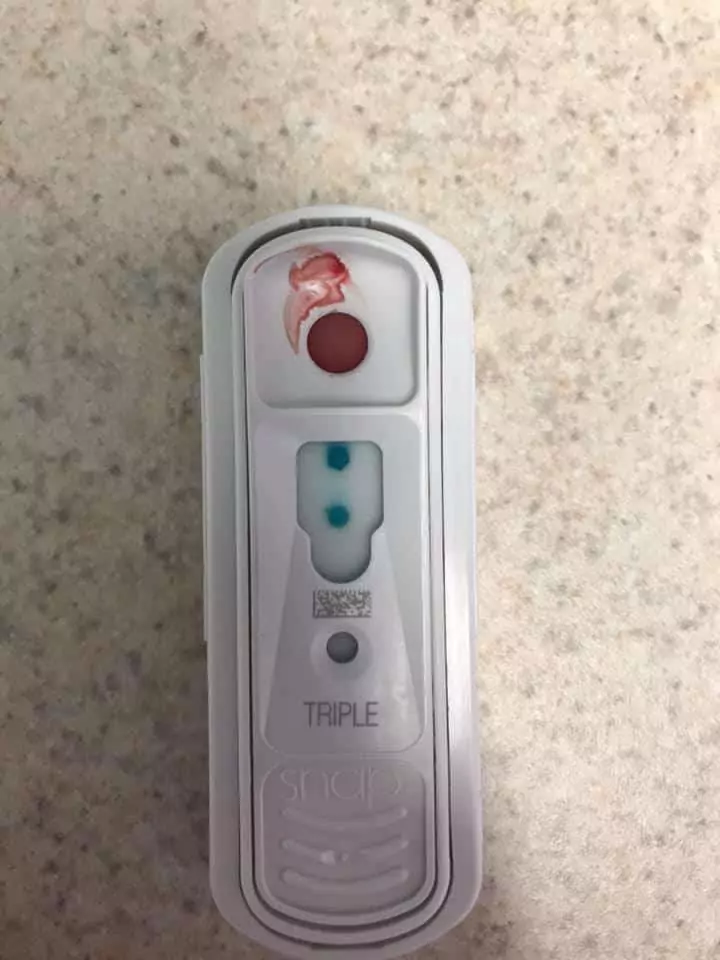
There is also a preventive drug for cats, however again, you should buy it after consultation with your vet.
Heartgard for Cats 5-15lbs 6 Doses
from: Vet Approved Rx
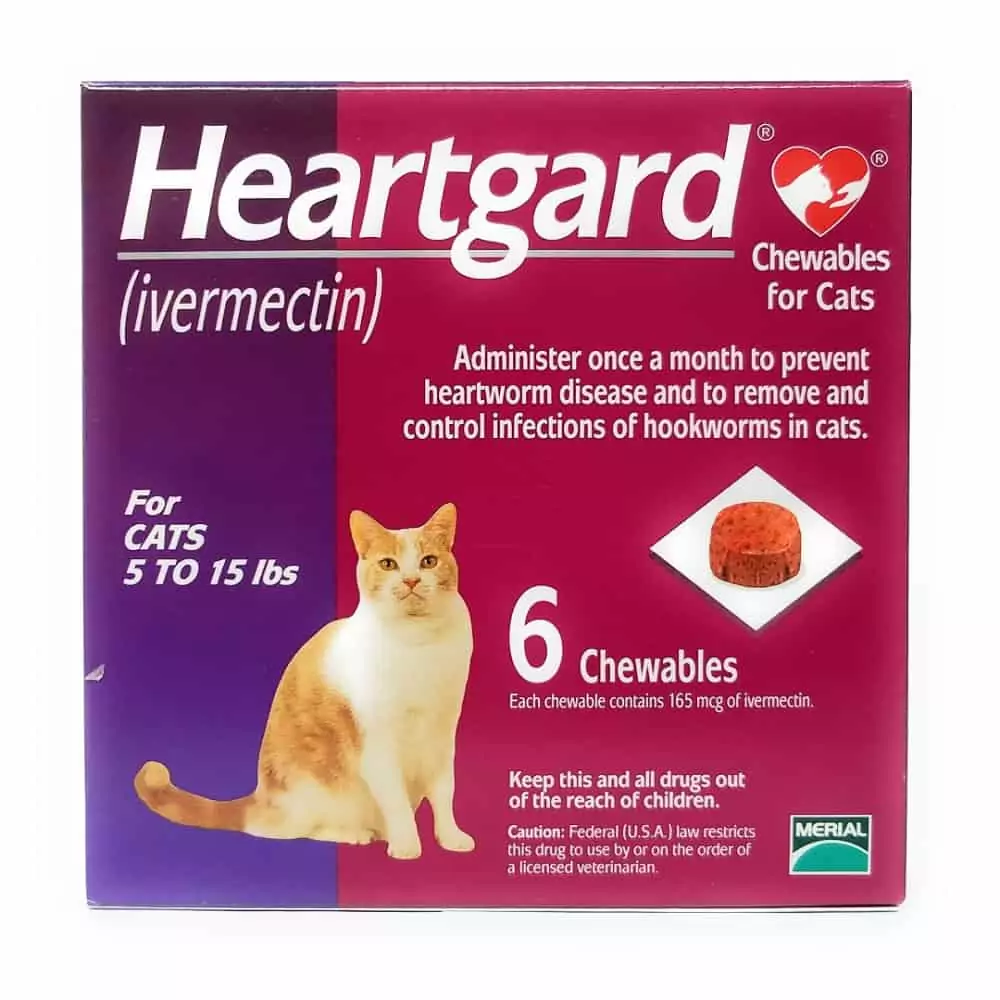
Questions and answers for pet owners
How much is heartworm treatment?
According to the American Heartworm Association and DVM360, heartworm treatments oscillates between $1,200 and $1,800. It also depends on the dog’s weight.
The treatment of this parasitic worm includes medications, x-rays, tests and veterinary fees, while the cost of veterinary prevention is around $70 to $200 and consists of a full year of heartworm prevention.
How much does a heartworm test cost?
A heartworm test can cost around $45- $50. It depends on the veterinary clinic.
How long after heartworm treatment can a dog be active?
The answer to this must be determined by your veterinarian and the level of success of the treatment. Failure to follow your vet’s instructions may result in severe consequences for your dog.
Generally, dogs should have restricted activity for at least 6-8 weeks.
What is the best flea and heartworm preventive medication for dogs?
Some preventive heartworm medications can also eliminate other internal and external parasites. It is essential to consult with your veterinarian to determine the most suitable preventive drug for your furry friend.
The FDA recently approved Simpatica Trio, which protects dogs against flea, ticks, heartworm, roundworms, and hookworms.
Can I get heartworm from my pets?
No, you can’t get heartworm from your pets. The only way you can get heartworm is by a bite of an infected mosquito.
What does heartworm look like?
Heartworm looks like spaghetti (my apologies if you read this while eating your dinner!). Female heartworms can grow up to 12 inches in length, and male heartworms can grow up to 6 inches in length.
How common is heartworm?
Heartworm disease is a common condition in the veterinary field. Every three years, The American Heartworm Society collects data across the country to show the average number of cases per vet clinic. You can click HERE to check the 2019 map.
Summary
Heartworm disease can be fatal in dogs, but with preventive care, you can protect Fido against this condition. Ask your veterinarian to test your dog every year, and if your pet is not taking preventive medication, make sure to inquire about it in your next visit to the vet. Prevention can be initiated in puppies at around 6-10 weeks of age.
As I talked a lot about preventive care in this article, I wanted to give you another resource from our amazing I Love Veterinary Blog. Here is an infographic with the most important vaccines for dogs!

